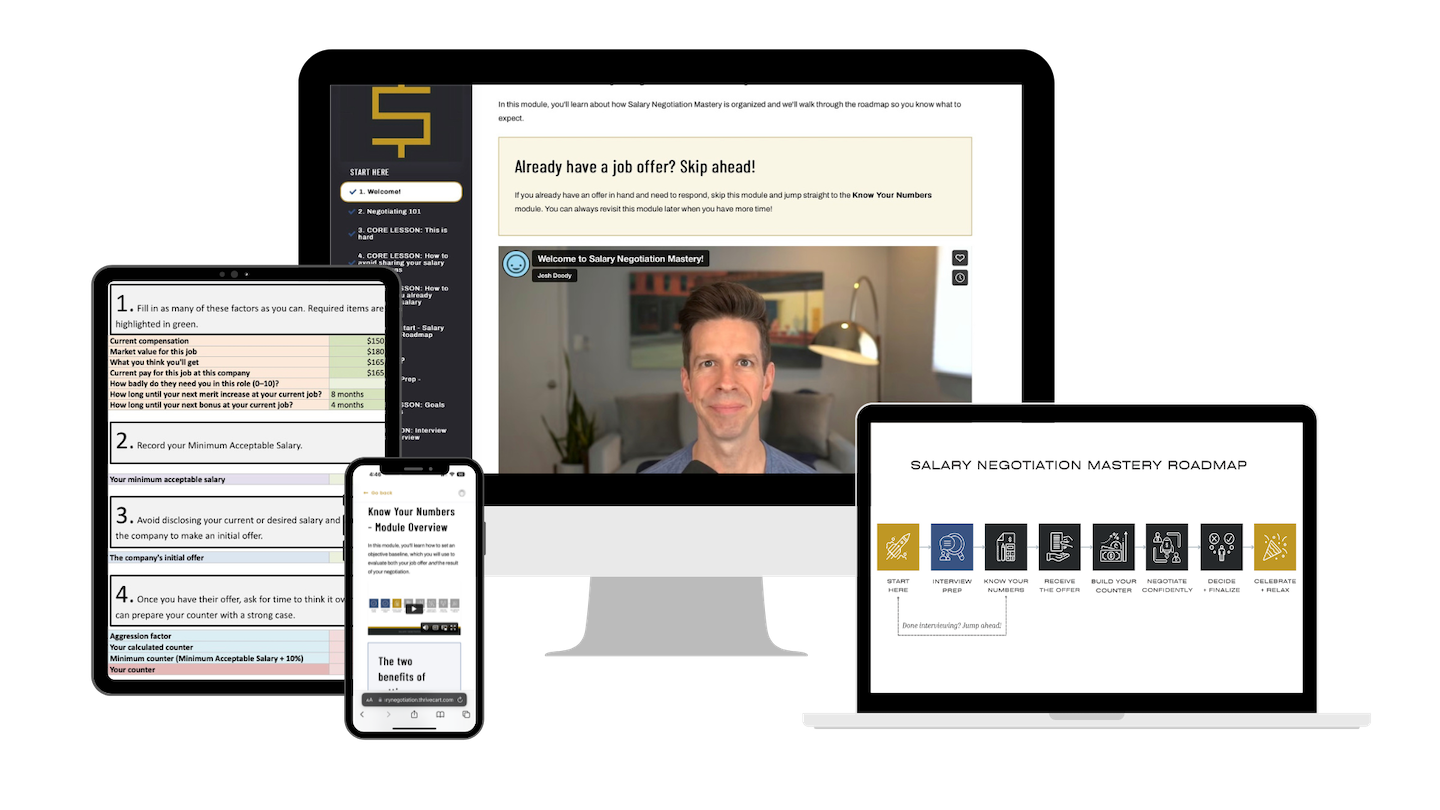Interview prep
10 questions to ask in an interview to really stand out
Stand out and learn more about the job opportunity
by Josh Doody
Your primary goal in the interview process is to get the best job offer possible. Sometimes you can do that by giving great answers to interview questions. But don’t overlook the benefits of asking good questions in the interview process, starting as early as the pre-interview.
When the interviewer says, “Do you have any questions for me?”, that’s a golden opportunitiy to establish yourself as a strong candidate for the position and to learn more about the opportunity you’re pursuing.
So keep this article handy to make sure you have some good questions to ask in your interview.
1. “What does a typical day look like for this role?”
The answer to this question could help you decide if this is a job you really want, and this is also an opportunity for you to demonstrate genuine interest in the job itself. Goals and mission statements are nice to know, but the day-to-day of a job will impact you directly every single day.
Does this company’s typical day sound like one you would enjoy?
2. “What are the greatest challenges for your team right now?”
A similar and equally useful question is:
“What is the greatest challenge for this particular role?”
These job interview questions show that you’re already thinking about the job itself and the answers will help you evaluate whether the job is a good fit for you. You could hear about the day-to-day and realized it’s not a good fit for you. Or maybe hearing about the current challenges faced by the team will help you realize you wouldn’t function well in that environment.
3. “How long have you been with the company and what is it like working there?”
Or a more direct form of this question is:
“What’s the company culture like?”
This question could yield useful information about the company culture so that you can consider how comfortable you might be working there. If you are able to ask this question to a few different interviewers, you should start to see some patterns emerging in their answers. Those patterns will tell you a lot about the company itself and what it’s like to work there.
4. “What can you tell me about the team or group that I would be working with if I get the job?”
This job interview question is a great way to gather intel on the team you’re interviewing for. Not only will you be able to tailor your answers to the specific people you’re talking to, but you should also be able to focus more on the specific responsibilities of the team.
You may also learn specific things about other people who may interview you, and you can use that information to give better answers and evaluate how well your answers are being received in future interviews.
For example, you may learn that one team member is pretty sarcastic or likes to be funny, and that will help you understand their questions and responses better. Or you could learn that someone on the team used to play a sport, and you can look for natural opportunities to mention that sport and build rapport with that person if they interview you later.
5. “I noticed this trend in your current job openings—what does it say about the company’s direction right now?”
This question has two benefits:
- It shows that you’ve done your homework before the interview. If you’re asking this question, you had to have spent some time researching the company, reviewing their website, and thinking about their direction.
- It helps you tailor your answers to future questions to focus more on the company’s immediate needs. The answer to this question will tell you where to focus your answers as you continue to tell a story about how the company will be better if you’re a part of the team. Once you know where they’re focused, you can assume they spend a lot of time thinking about that specific area of their business, so you should too.
6. “Can you tell me about career growth opportunities for this job?”
Another way to ask this question is:
“What would a long-term career look like at this company?”
This is another question with two benefits:
- You’re thinking long-term, which means the company’s investment in hiring you will probably have a better payoff. Hiring people is expensive, so companies want to know that the people they hire will be around for a while. By asking this question, you’re sending a signal that you would like to be around for a while.
- You can learn more about the specific role you’re applying for and about future roles you may move into over time. You can also use this question to learn more about your potential career options if you join the company. How quickly will you bump into a ceiling? Is there a clearly defined career path for this role? This information can help you determine if this role is a good long-term career move for you.
7. “Are there any special initiatives or side projects the team is working on right now?”
If the team is investing time and energy in a side project, that’s probably something important to them. Learning about that project will help you understand more about where the team is focused, and will give you good information to use as you answer questions. How? You can make sure to mention that you like working on side projects, and you can focus on the specific type of project they’re working on right now.
8. “How has the company changed in the past year?”
This job interview question could uncover a treasure trove of information you can use to determine if you really want to work for this particular company. Not only will you get a better sense of where the company is going, but you’ll learn more about where it came from. Plus, the magnitude and type of changes will tell you a lot about the company culture and leadership.
9. “What is your favorite thing about working for this company? Least favorite thing?”
This is a straightforward way to add to your list of pros and cons as you consider whether this role at this company is the right fit for you. Remember, you’re interviewing the company as much as they’re interviewing you.
10. “What are your expectations for this role in the first 90 days?”
It usually takes a while to get going in a new job. There’s paperwork, onboarding, training, learning new tools, and all kinds of other things that you’ll have to do before you can really be productive.
So it is helpful to know what the hiring manager or team expects from the person who steps into this role. This not only allows you to demonstrate that you’re thinking ahead about how you can help the company, but it will help you focus on specific goals when answering questions in your job interviews.
Pick your best two or three questions and don’t force it
Each job interview question is an opportunity to stand out and learn more about the opportunity you’re pursuing. And you can often use the information you learn in one interview to give better answers to questions in future interviews.
One last thing—don’t force it! Having these 10 questions to ask in an interview will help you make sure you have at least a couple good questions ready when you get the chance. But if you’re out of time or have already addressed all of your questions, it’s ok to just tell the interviewer that you don’t have anymore questions and thank them for their time.
Learn more How long should you wait to follow up after your interview?

